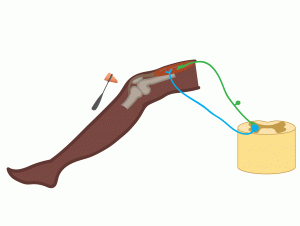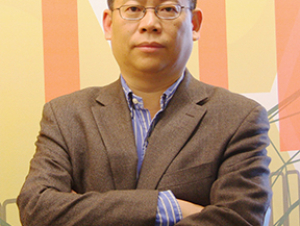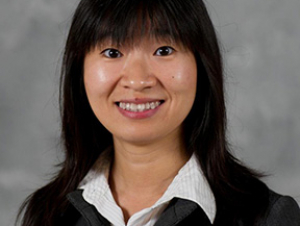To request a media interview, please reach out to experts using the faculty directories for each of our six schools, or contact Jess Hunt-Ralston, College of Sciences communications director. A list of faculty experts is also available to journalists upon request.
Latest News
Mathilda Simone Avirett-Mackenzie was born in Boston but grew up in Atlanta. For as long as she can remember, Georgia Tech had been an important part of her life.
Our spines are more than just a cord, performing complicated, intricate behaviors without input from the brain.
To celebrate the International Year of the Periodic Table, Tech students, faculty, and staff talk about their favorite elements. For April, we have Kimberly Short, former assistant director of the Southeast Center for Mathematics and Biology.
Atomic beams conjure fantasies of gigantic Space Force cannons. But tiny atomic beams now shoot out of newly engineered collimators, a kind of particle peashooter, that could land in handheld devices. The beams create precise inertia better than a gyroscope's that could help spacecraft navigate. The atomic beams from the new silicon collimators could also let physicist cheaply and easily produce exotic quantum states for study.
Georgia Tech has named Younan Xia as the recipient of the 2019 Sigma Xi Sustained Research Award. Xia has joint appointments in three Georgia Tech academic units: the School of Chemistry and Biochemistry, the Wallace H. Coulter Department of Biomedical Engineering, and the School of Chemical and Biomolecular Engineering. The award recognizes Xia’s sustained outstanding research at the intersection of biomedical research and nanotechnology and the original and important contributions he has made to advance these fields.
Georgia Tech has selected Nga Lee (Sally) Ng to receive the 2019 Outstanding Achievement in Early Career Research Award. Ng is an associate professor with joint appointments in the School of Earth and Atmospheric Sciences and the School of Chemical and Biomolecular Engineering. The award recognizes early-career faculty who have made significant discoveries or advancements in their research that visibly impact society or one or more scholarly communities.








